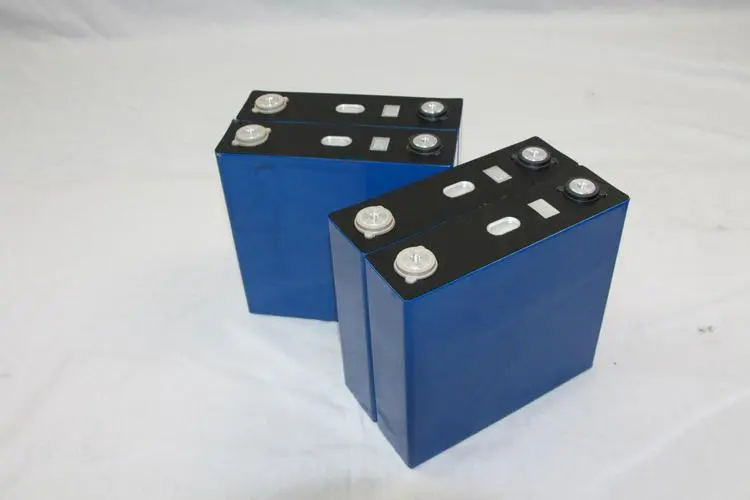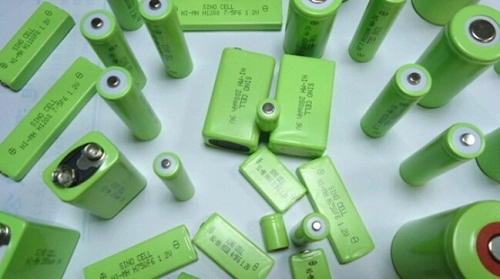 |
Welcome To Evlithium Best Store For Lithium Iron Phosphate (LiFePO4) Battery |
 |
Introduction
In the world of rechargeable batteries, two popular contenders, LiFePO4 (Lithium Iron Phosphate) and NiMH (Nickel-Metal Hydride), have been battling it out for supremacy. These battery technologies have unique characteristics that cater to various needs and applications. In this article, we'll dive into the differences between LiFePO4 and NiMH batteries, exploring their advantages, disadvantages, and ideal use cases. Whether you're powering up your gadgets or seeking an eco-friendly energy solution, understanding these battery options will help you make an informed decision.

LiFePO4 batteries, also known as LFP batteries, have gained significant attention due to their impressive energy density and long lifespan. These batteries utilize lithium iron phosphate as their cathode material, which offers enhanced stability, safety, and performance. Let's take a closer look at their key features:
LiFePO4 batteries boast several advantages, making them a popular choice in various industries:
Longevity and Durability
LiFePO4 batteries can withstand a higher number of charge-discharge cycles compared to many other battery types. This longevity ensures they last for several years, making them suitable for applications like electric vehicles and renewable energy storage.
Enhanced Safety
One of the standout features of LiFePO4 batteries is their inherent safety. The chemistry is less prone to thermal runaway, reducing the risk of overheating and fires. This safety aspect is crucial for applications where stability is paramount.
High Discharge Rate
LiFePO4 batteries excel in delivering high discharge rates without compromising their capacity. This makes them suitable for applications requiring quick bursts of energy, such as power tools and electric bikes.
While LiFePO4 batteries offer impressive advantages, they also have some limitations:
Cost
The manufacturing process and materials used in LiFePO4 batteries contribute to a higher upfront cost. However, their long lifespan and performance justify the initial investment over time.
Energy Density
LiFePO4 batteries have a lower energy density compared to some other lithium-ion batteries. This may impact their suitability for applications where space and weight are critical factors.

NiMH batteries have been around for decades and have undergone improvements to keep up with technological advancements. These batteries use a nickel-based positive electrode and a hydrogen-absorbing negative electrode. Here's a closer look at their characteristics:
NiMH batteries offer several benefits that make them a popular choice in specific scenarios:
Environmental Friendliness
NiMH batteries are less harmful to the environment compared to their counterparts like lead-acid batteries. They don't contain toxic metals like cadmium, making them a greener option for consumers.
Availability and Affordability
NiMH batteries are widely available and generally more affordable than some advanced lithium-ion options. This makes them a practical choice for devices that require regular battery replacements.
No Memory Effect
Unlike some battery types, NiMH batteries don't suffer from the memory effect, meaning they can be recharged at any state of discharge without affecting their capacity.
Disadvantages of NiMH Batteries
NiMH batteries come with their own set of drawbacks:
Self-Discharge
One notable drawback of NiMH batteries is their relatively higher self-discharge rate. This means they can lose charge even when not in use, which might not be ideal for devices with infrequent usage.
Lower Energy Density
Compared to LiFePO4 batteries, NiMH batteries have a lower energy density, which can impact their overall runtime in certain applications.
The decision between LiFePO4 and NiMH batteries depends on your specific needs and preferences:
Long-Term Usage: If you're looking for batteries that will last for many charge cycles without significant degradation, LiFePO4 batteries are an excellent choice. They're suitable for applications like solar energy storage and electric vehicles.
Safety Priority: If safety is paramount, LiFePO4 batteries offer enhanced stability and are less likely to experience thermal runaway, making them a safer option in critical applications.
Cost-Effectiveness: If you need batteries for devices with regular use that don't require high energy density, NiMH batteries offer an affordable solution.
Environmental Considerations: If you're environmentally conscious, NiMH batteries have a greener profile due to their lack of toxic metals.
Conclusion
In the LiFePO4 vs NiMH battery showdown, there's no one-size-fits-all answer. Both battery technologies have their strengths and weaknesses, catering to diverse needs. Consider factors like lifespan, energy density, safety, and cost when making your decision. Whether you're powering up your remote control or planning an off-grid energy system, understanding these battery options will empower you to make the right choice for your specific requirements.
Edit by editor
Last Update:2023-08-12 10:10:53
All Rights reserved © 2026 Evlithium Limited